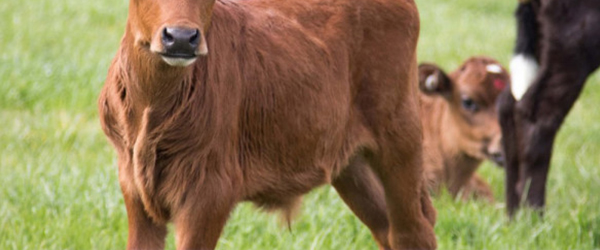
Calf tests do nothing to promote good welfare
December 21st, 2016In the article ‘Kiwi research explores emotions in farm animals’ (New Zealand Herald, Monday 19 December 2016), scientist Gosia Zobel discusses her work conducting trials into the emotional state of dairy calves, commenting on one test that: “The level of anticipation at the sight of the flashing light, and the interaction with the play items, was much greater than expected by the researchers.”
Without having seen the full peer-reviewed publication, it seems that this finding should not be surprising given the usually barren test environments. Calves are normally separated from their mother in the first few days of their life. The calves may not have had an opportunity to interact with other calves, and most probably did not have any contact with their mother during study duration. When left with their mother, calves wean after several months.
In these so-called ‘preference testing’ scenarios, researchers sometimes find that animals behave differently to what they expect. The testing environments are frequently standardised, bearing so little resemblance to animals’ natural environments that they do not invite natural behaviour.
While calves are precocial animals, born with their eyes open, a good coat and the ability to walk within hours, they still need their mothers. They need to be able to follow on foot quickly, as cattle have evolved to be able to stay away from predators. This ability does not make young calves independent and able to fend for themselves. They would normally wean naturally after a few months or more if they had not already been taken away from their mothers a few days after birth.
In the tests the calves were provided with different objects to interact with, such as a rope. Giving calves a choice of different floor materials, or an object they can manipulate with their mouth, in the absence of being able to suckle naturally from their mother’s teats, is not enough for calf well-being. Most young animals are inquisitive, and given little or no environmental or social stimulation, these calves clearly anticipate any slightly positive features to keep them busy. These indicators of positive interest do not translate into meaningful and lasting changes promoting good welfare in the intensive, profit-driven dairy industry.

Calves are just like other young animals who need their mothers. The modern dairy industry does not adequately respect calves’ or cows’ needs, and is inherently cruel to both. Taking calves away just days after birth just so people can drink the milk that is supposed to help develop and grow the calf, is inhumane and unnecessary. Cows frequently suffer from malnutrition. They can barely keep up with the demand for calories needed to produce such unnatural amounts of milk, and many go hungry. A substantial number of cows suffer from lameness or mastitis or other diseases, and they clearly suffer when their calves are taken away shortly after birth. Cows are social beings, who develop friendships, but the dairy industry just treats them as numbers.
The dairy industry has experienced continued controversy over the treatment of animals in the last couple of years. But rather than seeking to make minor improvements, we need to stop treating animals as production units, and start recognising them as sentient beings. All animals have an interest in staying alive, keeping away from danger and exploitation, and seeking positive emotional states in natural environmental settings.
On a personal level, cutting out meat and dairy from your diet will greatly help hundreds of animals in your lifetime. For an introduction to our 100% Vegetarian challenge, fully supported with tips, recipes and useful links, please visit
http://dev.safe.org.nz/pledgeveg.
Jasmijn de Boo, SAFE CEO and animal welfare scientist.
